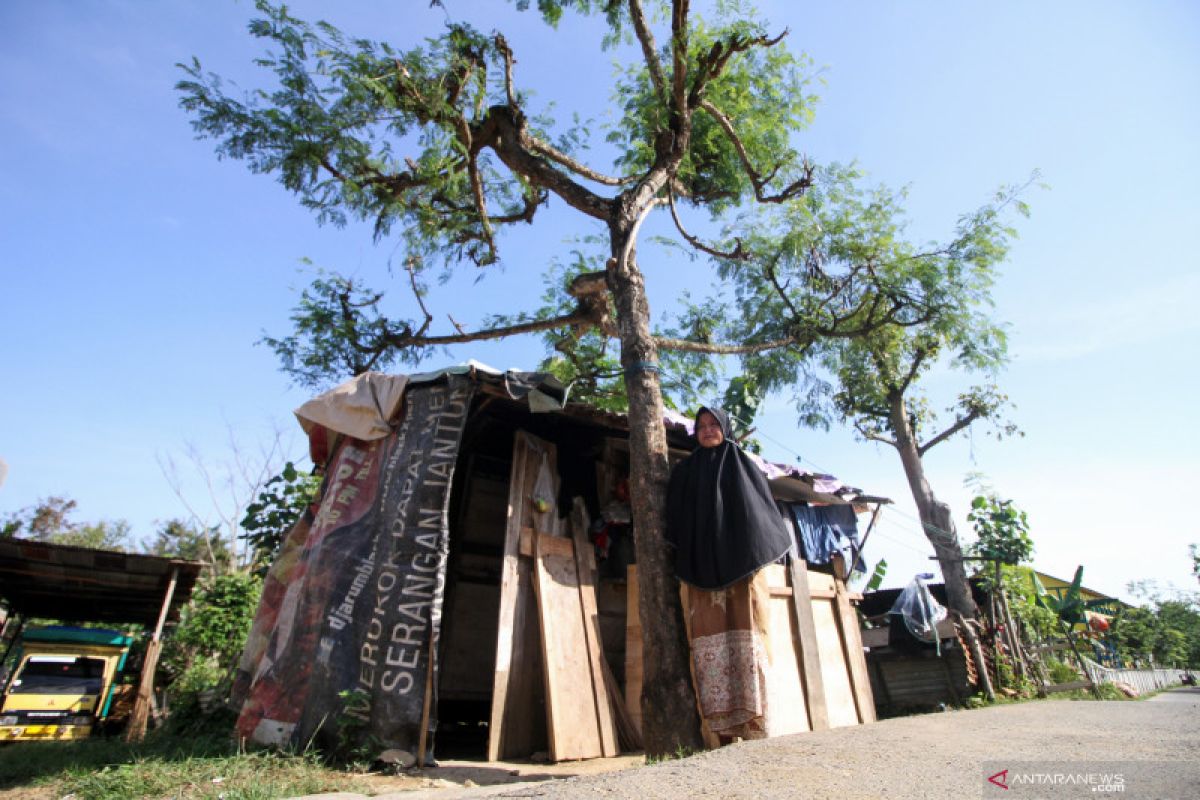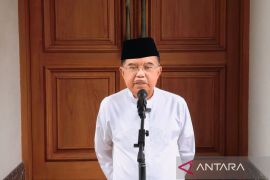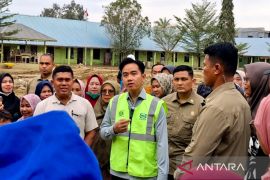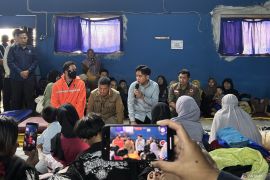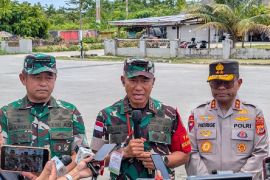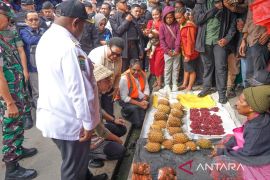"We only have one year to achieve the target of zero percent extreme poverty rate by 2024, which is six years faster than the target set by the Sustainable Development Goals," he said.
He made the statement at the "National Coordination Meeting and Provision of Fiscal Incentives for the Current Year for Extreme Poverty Elimination Performance in 2023" in Jakarta.
Amin emphasized that regional heads have a crucial role in creating programs and activities, as well as in the use of regional budgets for accelerating extreme poverty elimination.
He asked for consistency from regional heads, especially in carrying out strategies to reduce people's spending burdens, increase people's incomes sustainably, and reduce pockets of poverty.
He also highlighted the need to focus on community empowerment that prioritizes the aspects of growth, social justice, and accessibility.
He said that several concrete steps have been taken to achieve the target of eliminating extreme poverty, including improving the accuracy of the target beneficiaries by developing the Extreme Poverty Elimination Acceleration Targeting (P3KE) Data.
In addition, the government has converged programs and budgets to eliminate extreme poverty, including by making adjustments in the state budget (APBN), regional budget (APBD), and village budget (APBDes).
"The results are starting to show. Statistics Indonesia (BPS) noted that the extreme poverty rate in March 2023 declined to 1.12 percent. Our task is to maintain this downward trend until we achieve the target," he said.
Amin stated that these efforts have been realized through the collaboration and hard work of all stakeholders.
As a form of appreciation, Amin said, the government has awarded fiscal incentives to regional governments that have been committed to extreme poverty elimination and performed well in the task.
The vice president gave three messages to the regional governments.
First, he asked them to maximize the incentives to strengthen extreme poverty elimination strategies, especially for efforts that have direct benefits for the community.
Second, he asked that the target beneficiaries of extreme poverty elimination programs be determined using the P3KE data so that interventions can be more on target.
"Prioritize poor people with limited access, as well as older adults and people with disabilities," he directed.
Third, he called for intensifying synergy and collaboration between ministries, agencies, regional governments, higher education institutions, businesses, and industries in potential sectors.
Related news: Ministry strengthens policies to help eradicate extreme poverty
Related news: Extreme poverty projected declining to 0.8-0.9 percent at 2023-end
Translator: Rangga Pandu, Raka Adji
Editor: Anton Santoso
Copyright © ANTARA 2023
